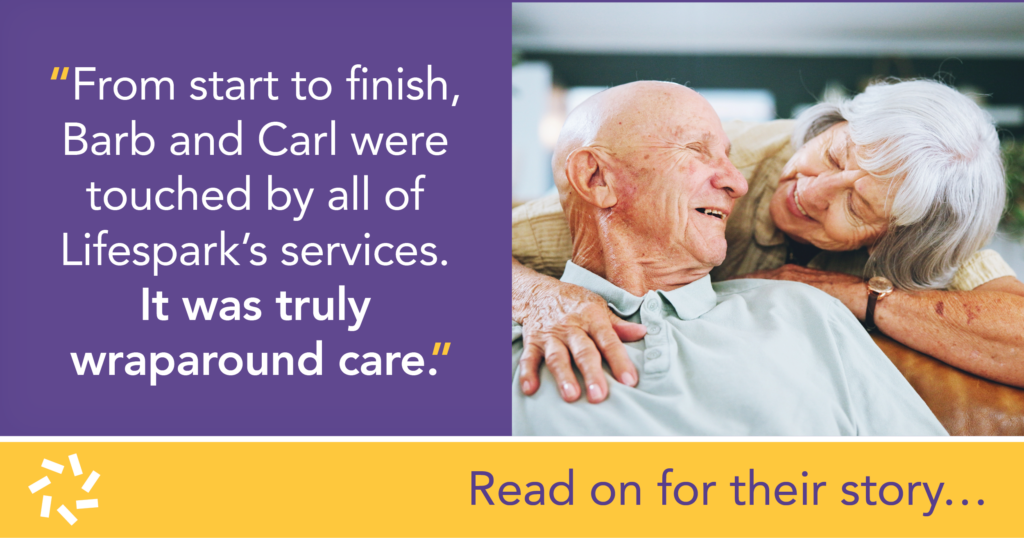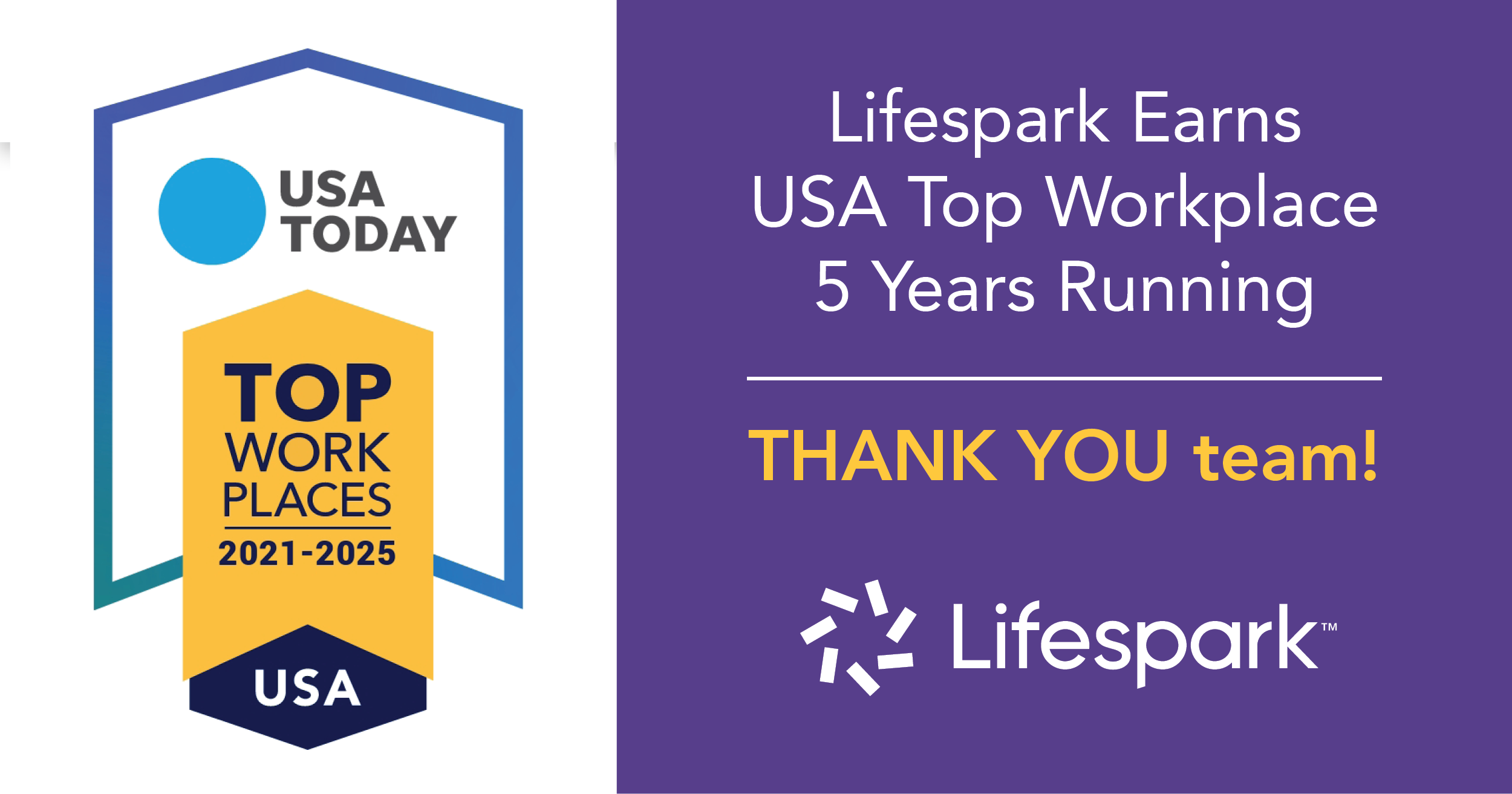
Read time: 1 min, 50 sec
For the past six years, Barb* had been caring for her husband, Carl*, in their home with the support of her sons and caregivers from Lifespark Community Home Care, but she was struggling to keep him out of the hospital. Chronic urinary tract infections (UTIs), treatment for bladder cancer, and advanced dementia had created a perfect storm of health crises, resulting in frequent hospitalizations and a marked decline in his physical and cognitive health.
In December 2023, Lifespark Nurse Practitioner, MaryBeth Major, NP, and Life Manager, Becky Sertich, OTR/L, met with Carl and Barb for a transitions visit after his hospitalization for sepsis related to his cancer treatment. Because Carl was member of Blue Cross and Blue Shield of Minnesota, he had access to Lifespark COMPLETE (LSC). As a LSC member, Carl was the team’s primary focus; however, it was immediately clear to MaryBeth and Becky that Barb needed as much support as her husband.
“From that very first meeting, Becky and I consulted with each other on every decision and recommendation, not just around Carl’s medical needs, but also to help Barb regain some control over her day-to-day life,” MaryBeth said.
Contingency planning
A huge source of stress for Barb was her fear that Carl would have to return to the hospital. Still, she resisted MaryBeth’s recommendation to stop using a Foley catheter for his continence needs. “I told Barb that every time she changed his catheter, he would get a UTI which would invariably land him back in the hospital,” MaryBeth said. “She knew she was choosing the catheter because he was so hard to care for, and yet she wanted him at home.”
To help prevent future hospitalizations, MaryBeth and Becky created a contingency plan that would go into effect at the first sign of a UTI. The plan directed Barb to give him an antibiotic and contact Lifespark immediately.
As anticipated, there were additional UTIs. But now, because Lifespark COMPLETE is seamlessly integrated with all of Lifespark’s services, a nurse from Lifespark Home Health was able to do in-home labs and blood draws, treat the infection, and change his catheter. This eliminated the need for hospital care.
Hard questions
As the weeks passed, Carl’s health and mobility continued to decline. He now needed a three-person assist for all transfers, making it increasingly hard for Barb to get him to the cancer clinic. Still, she resisted the idea of hospice for her husband. MaryBeth suggested they take a palliative approach that would focus on managing his pain and keeping him comfortable, while continuing the cancer treatments.
After a few months, MaryBeth felt it was time for some tough questions. “Conversations around end-of-life care aren’t easy, but once we get past the initial discomfort, they’re well worth the effort,” she said.
After sharing her concerns about Barb’s health, sanity, and safety, MaryBeth talked openly about the reality of Carl’s advanced dementia and how the condition impacts treatment decisions and levels of care. “I asked her whether he understood the unpleasant side effects of the cancer treatment—and how these side effects were affecting her ability to care for him,” she said. “I also encouraged her to talk with Carl’s oncologist about his treatment plan and the likely progression of the disease.”
Finally, she asked the toughest questions of all: “What are you prolonging his life for, and how do you want to spend the time you have left?”
Transition to hospice
In April, Barb agreed to meet with Lifespark Hospice. Joined by Becky and MaryBeth, Kristy, a Lifespark Medical Social Worker, talked with Barb about what happens when someone dies at home, while also explaining the different ways hospice provides support, including bringing in equipment and commodes, moving furniture, offering bereavement counseling, and more.
The timing was right. Barb was ready to enroll Carl in hospice and to move him into memory care. Fortunately, prior to Kristy’s visit, she had contacted a memory care community, so just four days after Carl went on hospice, Lifespark was able to move him into his new place. The transfer was seamless and Lifespark Hospice continued to support him until his death two months later.
According to MaryBeth and Becky, Barb was grateful for the support she got and for what she described as a beautiful death for her husband. “From start to finish, Barb and Carl were touched by all of Lifespark’s services,” MaryBeth said. “It was truly wraparound care.”
To learn more about our services and our approach to Complete Senior Health, visit Lifespark.com or call 952-345-8770.
*Names have been changed to protect client confidentiality.



